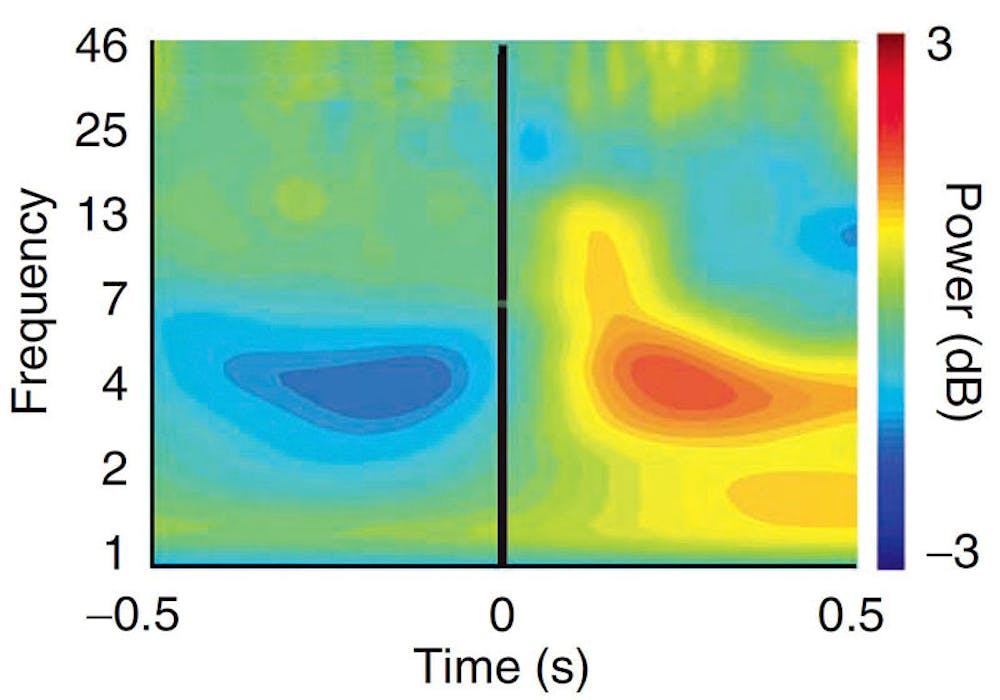Humans and rats have cognitive similarities when reacting to their own errors, according to new research conducted at Brown and Yale.
The findings could help further research aiming to treat problems involving a brain mechanism known as adaptive control, the authors wrote in the study, published in the journal Nature Neuroscience Oct. 20.
To investigate how people and rats respond to errors, the researchers had both species estimate time intervals — the 12 humans in the study had to estimate intervals of 1.4 seconds, while the six rats had to estimate intervals of one second. Both species received feedback about their performance on half of the trials before trying to estimate the time interval again.
Researchers measured the electrical signals of the brain of both species after they had correctly and incorrectly estimated the intervals.
The study found that when reacting to errors, both rodents and humans exhibit brain activity in the medial frontal cortex, a region in the front part of the brain. When this part of the was brain turned on in humans and rats, the researchers witnessed low frequency oscillations.
“When we saw the qualitative similarities it was really just jaw dropping,” said James Cavanagh, a former postdoctoral associate at Brown who is now an assistant professor psychology at the University of New Mexico.
The cross-species cognitive similarities the study uncovered “give us the opportunity of taking things we’re observing in humans and (moving) down the evolutionary chain,” Cavanagh said. He said it is now more reasonable to test some hypotheses about human adaptive control in rats.
Medical research in rats only yields beneficial results to humans if the rodent model accurately resembles human brain activity. With the knowledge that humans and rats show similar neural responses to errors, researchers who aspire to treat mental illness in the medial frontal cortex now have the ability to test novel drugs and “mechanistically understand them in the rats,” Cavanagh said.
Diseases that affect adaptive control include attention deficit hyperactivity disorder, obsessive compulsive disorder, Parkinson’s disease and schizophrenia, the authors wrote in the study.
Existing literature already shows that the medial frontal cortex is responsible for adaptive control in both rodents and humans, but no prior research had quantitatively compared the neural responses of both species.
“Results coming from different species have not always aligned very well, and it has not been clear whether this is because of differences in experimental methods or real neurobiological differences between species,” said Matthew Botvinick, a professor of neuroscience at Princeton. “In this sense, the ... paper represents a very satisfying demonstration that parallels can be drawn between species,” he added.
Obtaining the data was not easy, Cavanagh said. “There was a big problem in translational cognitive neuroscience,” he said, adding that the rodents and humans did not respond the same way physically to the experiment so those involved in the observations had to make sure they were only examining the signals related to adaptive control.
“We know a lot about the properties of these oscillations in human prefrontal cortex in cognitive tasks, but there’s also a lot we don’t know about their causal involvement in regulating adaptive behavior,” wrote Michael Frank, a senior author of the study and an associate professor of cognitive, linguistic and psychological sciences, in an email to The Herald. “The rat studies allowed us to investigate not only whether the same neural signals are present in that species, but to more carefully assess the mechanisms by which these oscillations operate,” he added.
“It’s the first step of many in a very promising scientific approach,” Cavanagh said.

ADVERTISEMENT




